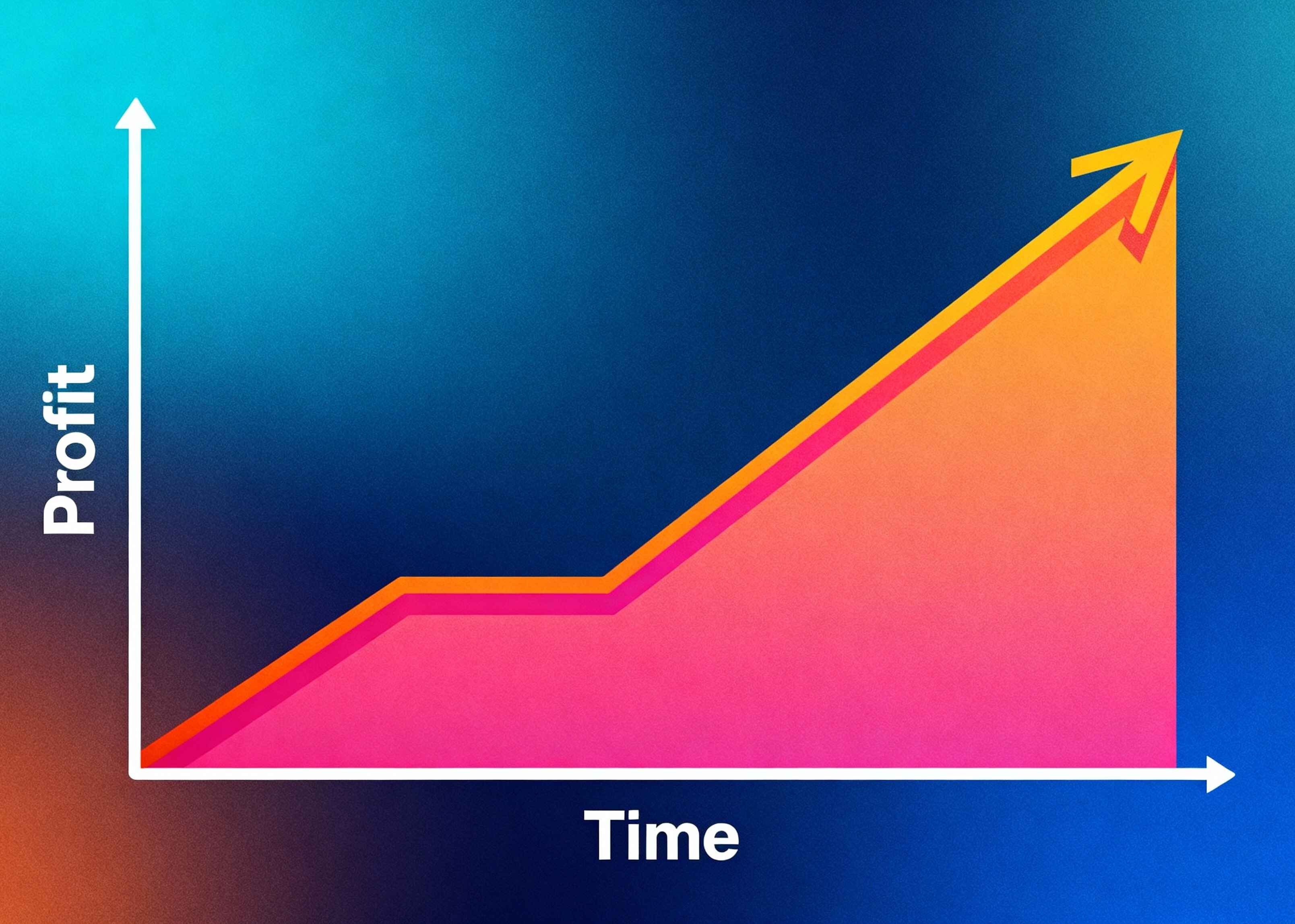
The contents of this article aim solely to inform the reader of a possible trading strategy, and in no way constitute trading advice. Always do your due diligence and excersise proper risk-management.
Day trading futures and perpetual contracts with just $100 is possible but comes with high risk due to leverage, margin requirements, and platform fees. While turning $100 into $1000 can happen with the right combination of strategy, risk management, and some luck, most traders need realistic expectations and education to avoid rapid losses. The “80% rule” helps identify high-probability quick trades, but should be used cautiously.
Futures trading lets you buy or sell contracts agreeing to trade an asset at a future date, leveraging small capital (margin) to control larger positions. Traders profit by correctly predicting price moves, whether up or down. While traditional futures usually require a few hundred to thousands of dollars to start, some platforms offer micro contracts or crypto perpetuals allowing entry with as little as $100.
Perpetual trading, mainly popular in crypto markets, involves contracts without expiration dates, offering 24/7 trading with often higher leverage but also unique risks like funding fees and rapid liquidations.
For beginners, understanding the minimum capital, risks, and differences between futures and perpetuals is essential. While futures generally provide a more regulated framework, perpetuals offer flexibility and quicker opportunities but demand careful risk management, especially when trading small amounts like $100 aiming for fast profits.
Day trading futures with a $100 account is a question many beginner traders ask, especially those eager to grow a small trading account quickly. Here, we will lay out realistic expectations, strategies, and crucial insights to help you understand if fast profits are achievable with such a small amount, comparing futures and perpetual trading as well.

Day trading futures involves leverage, margin requirements, and fees that heavily influence your ability to profit, especially with $100.
Leverage and Margin: Futures trading uses leverage, meaning you control larger contract values with less capital. However, brokers impose margin requirements; the minimum amount needed to open a position. For a $100 account, leverage can be high but risky.
Broker Minimums and Fees: Platforms like MexC or Binance offer micro futures with low minimum margins (~$50-$100), ideal for small accounts. Still, commissions and fees, even if small, can erode profits.
Risk of Rapid Losses: High leverage amplifies both profits and losses. With only $100, a few losing trades could wipe out your capital quickly.
Turning $100 into $1000 may sound exciting but requires realistic expectations and strict discipline.
Is It Possible? Yes, but it demands high-risk trading, excellent market timing, and sometimes, luck. Most traders experience multiple losses before consistent profits.
Leverage and Compounding: Using leverage, a 10x return can turn $100 into $1000. Reinvesting profits (compounding) helps grow capital but increases exposure to loss.
Example Scenario: Suppose you trade micro futures with 10x leverage, risking a small percentage per trade (e.g., 2-3%). Gradually, profitable trades compound your gains while strict stop-losses limit drawdowns.
Role of Luck vs. Skill: Skillful analysis and risk management lead to success, but rapid gains often include some element of favorable market moves.
Understanding platform requirements helps align your capital with trading goals.
Platform Minimums: CME’s Micro E-mini futures and crypto platforms like Binance and Bybit accept minimum margins around $50-$100.
Margin Requirements: These vary by contract and volatility. Energy or cryptocurrencies typically need higher margins than index micro futures.
Pros and Cons of a Small Minimum: Trading with the bare minimum limits your position size and profit potential but minimizes upfront capital risk.
The 80% rule is a Market Profile concept used to identify potential price movements for quick profits.
Definition: It states that when the current price re-enters and stays within the previous day’s value area, the price range where about 70% of trading volume occurred, there’s roughly an 80% chance the price will move to cover the full range of that value area.
Application: Traders use this rule to anticipate that prices will explore the high and low extremes of the previous day’s value area before reversing or continuing the trend, providing opportunities for fast trades.
Limitations: The rule is helpful but not guaranteed; market conditions and timing matter. It should be used alongside solid risk management.
Both futures and perpetual contracts offer opportunities for fast profits but differ significantly.
| Aspect | Futures Trading | Perpetual Trading |
|---|---|---|
| Contract Expiration | Set expiration date and settlement | No expiration, continuous contract |
| Leverage | Varies, often 10-20x for retail traders | Often higher leverage, up to 100x+ |
| Funding Fees | None, margin interest may apply | Funding rates paid between longs/shorts |
| Market Type | Traditional assets and regulated exchanges | Crypto-focused and 24/7 trading |
| Suitability | Best for traders preferring defined risk | More volatile, suited for aggressive traders |
For small accounts wanting quick returns, crypto perpetuals offer constant opportunities but come with higher risks.
Perpetual contracts are derivative instruments popular in crypto markets. 
Contract Mechanics: No expiry means traders can hold positions as long as margin is maintained.
Leverage & Volatility: High leverage and volatile markets can yield fast gains or losses.
Unique Risks: Funding rates fluctuate, and liquidations can happen rapidly, wiping out small accounts.
Example: With $100 and 20x leverage, a 5% move in the underlying can double your account but carries a high liquidation risk.
Risk vs. Reward: High-leverage day trading is inherently risky, especially with small accounts.
Education is Key: Success requires learning market dynamics, strategy development, and risk management.
Regulatory Warnings: Some regions have restrictions on minimum capital and leverage for futures trading. Ensure compliance.
Day trading futures and perpetual contracts with a small account, such as $100, is possible but requires a firm grasp of leverage, margin requirements, and strong risk management. While the allure of turning $100 into $1000 fast exists, it demands realistic expectations, discipline, and consistent learning. The 80% rule can be a helpful guide for rapid trades but should never replace comprehensive strategy and caution. Whether choosing traditional futures or crypto perpetuals, understanding their differences and inherent risks is crucial before diving in. Always prioritize education and start with amounts you can afford to lose to build a sustainable trading journey.